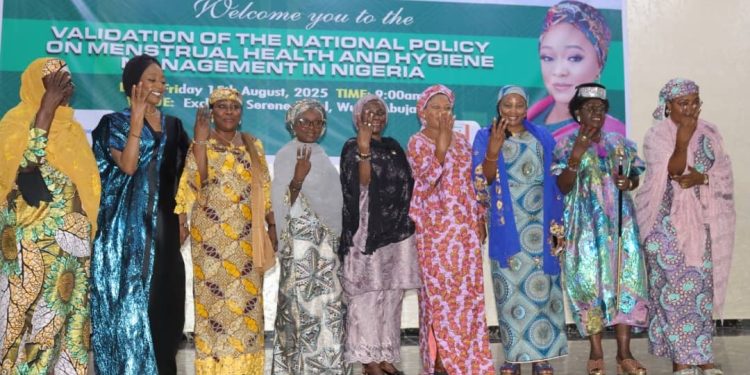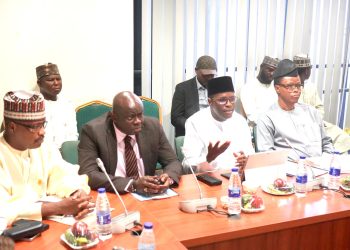By Nkechi Eze
The Federal Government has taken a historic step toward ensuring the dignity, safety and health of Nigerian women and girls with the validation of the country’s first-ever National Policy on Menstrual Health and Hygiene Management (MHHM).
The policy, covering a strategic period from 2025 to 2030, was formally endorsed on Friday during a high-level validation meeting held at the Exclusive Serene Hotel in Wuye, Abuja. The event brought together Honourable Commissioners of Women Affairs from all 36 States of the Federation, key civil society organisations, and international development partners, all united in support for a comprehensive national framework that places menstrual health at the core of Nigeria’s human development agenda.
Speaking at the event on behalf of the Honourable Minister of Women Affairs, Hajiya Imaan Sulaiman-Ibrahim, the Permanent Secretary of the Ministry, Dr. Maryam Ismaila Keshinro, described the policy as a bold and transformational effort aimed at safeguarding the rights of women and girls across the country. She praised President Bola Ahmed Tinubu for the approval of tax waivers on sanitary towels under the newly signed Tax Reform Act, describing the initiative as a “landmark intervention that will significantly reduce the financial burden on girls, especially those in rural communities and internally displaced persons’ camps.”
According to her, the national goal is clear and uncompromising: “By 2030, no girl in Nigeria should have to choose between managing her menstruation and pursuing her education.” She emphasised that strong collaboration between the federal and state governments will be vital to translating the policy into meaningful action nationwide. She further noted that the policy was developed through extensive consultations across all six geopolitical zones, ensuring that the perspectives and realities of women and girls in every part of the country were reflected.
In her remarks, the Country Director of WaterAid Nigeria, Evelyn Mere, pointed out the urgent need for implementation, revealing that only 11 per cent of schools in Nigeria currently have basic Water, Sanitation and Hygiene (WASH) facilities. She applauded the integrated design of the new policy, which she described as “transformative” for women’s wellbeing, adding that it goes beyond the provision of sanitary products to include sanitation infrastructure, health education and stigma reduction.
Also speaking at the event, the Acting Country Representative of Population Services International (PSI) Nigeria, Mrs. Fifi Ogbondeminu, highlighted the impact of the organisation’s Menstrual Health No Wahala (MH-NoW) programme and pledged to work with all tiers of government to promote affordable access to menstrual products, intensify menstrual health education, and eliminate harmful social taboos.
The policy ultimately aims to create an environment where every woman and girl across Nigeria is empowered to manage her menstruation safely, hygienically and with dignity. Stakeholders at the event stressed that its success will not be measured by validation alone, but by sustained implementation and results across the country.

















